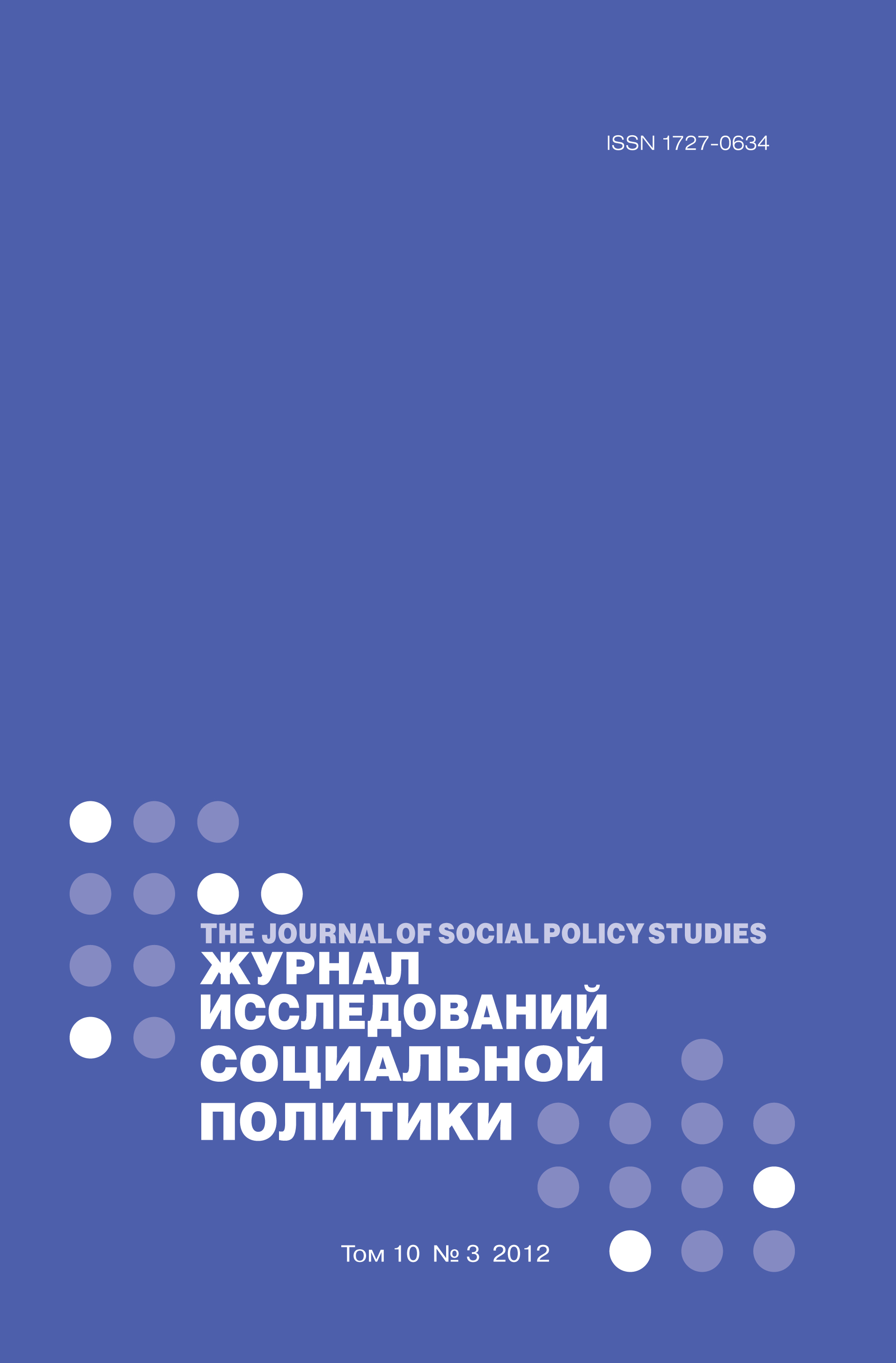Influence of Regime of Welfare and Parenting Values on Family Behavior and Education of Children: Cross-Country Analysis
Abstract
This article demonstrates how family values, educational values and family behaviour are influenced by individualist values, which are conceptualised as materialist and post-materialist values according theory of modernization by Ronald Inglehart (1971). An analysis of welfare regimes is used to examine cross-country differences in attitudes towards such issues as traditional and non-traditional families, single parenthood, and the qualities parents consider important to consider in raising their children. The analysis is based on the fifth wave of the World Values Survey, carried out in 2005-2007, and uses data from 26 different countries to allow for an international analysis of family values across nations, including both post-communist and other regimes. The countries were divided into four groups: countries with liberal welfare regimes, countries with conservative welfare regimes, countries with social-democratic welfare regimes, and post-communist countries.
The results show that processes of modernisation, and the changing values that accompany these processes, have led to changes in family values and family behaviour. Welfare regimes are shown to have a clear influence on family lifestyle choices. Whereas emancipatory values such as tolerance or decisiveness are valued in more welfare regimes where post-materialist values are more often held, post-communist regimes (where materialist values are more prominent) show noticeably different results. For example, those living in post-communist societies are more likely to hold more traditionalist views on issues such as marriage and single-parent families. Additionally, they are demonstrative of a “generational contract” whereby adults care for children, then in turn are cared for in their old age, which strengthens traditional values. Welfare regimes are also linked to what percentages of the population live in unregistered partnerships and whether mothers are likely to take part in the labour market. Values held by parents are also linked to approaches to child-rearing (e.g. attitudes towards religion, the perceived need for children to be independent, tolerant, etc). Other than welfare regimes, aspects such as income bracket and education are also shown to affect family values.















